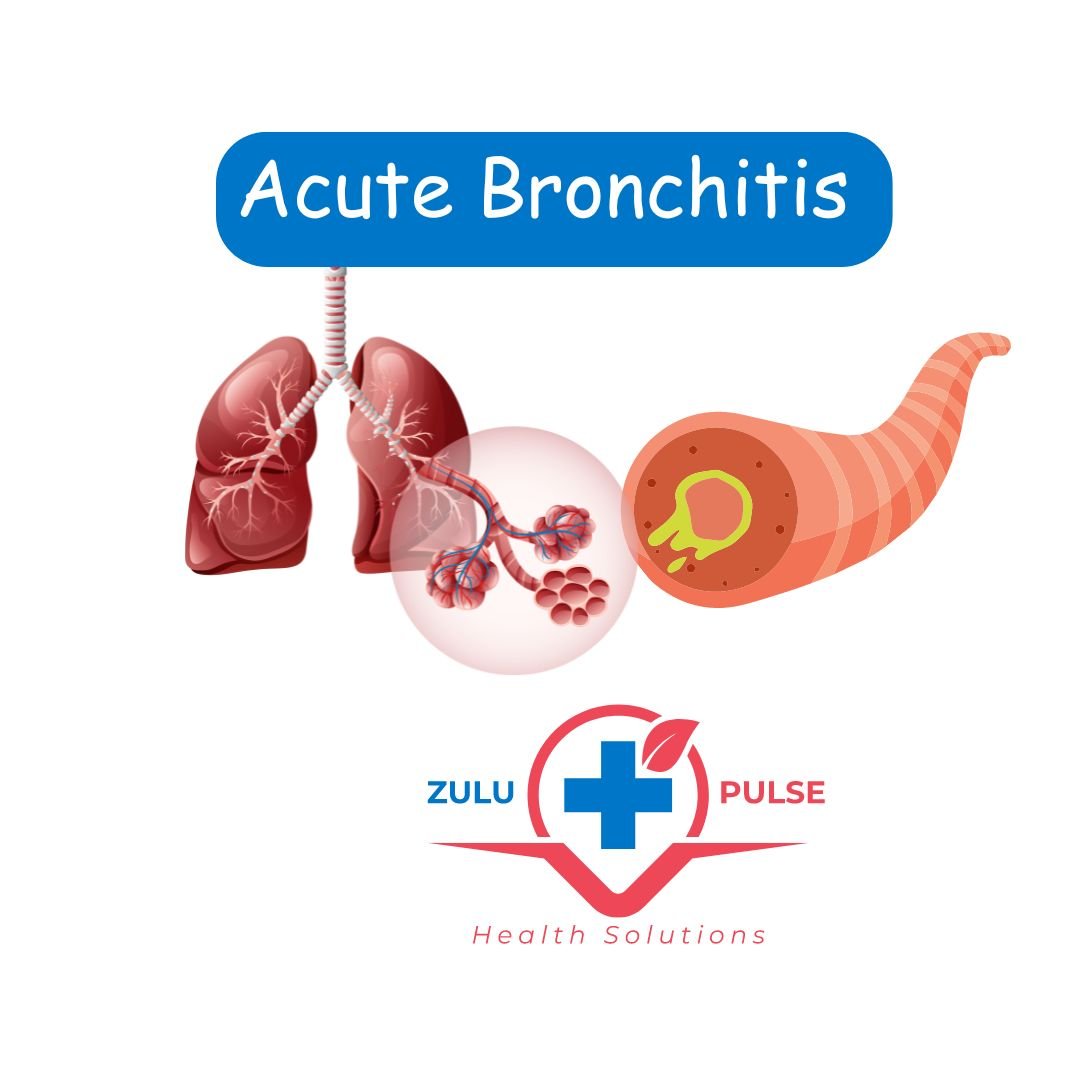Acute Bronchitis is a self-limiting inflammation of the respiratory tract due to infections. It includes inflammation of trachea and Bronchial tree. Acute bronchitis is one of the most common causes of cough in both adults and children.
Below is the video if you prefer it over reading text:
In most cases acute bronchitis occurs after upper respiratory infection (URI) in the absence of chronic lung disorders. Many types of viruses to be mentioned shortly, are known to cause the condition.
The condition does not require any antibiotic treatment as it is caused by virus infection but supportive therapy is still needed to shorten duration of illness and prevent complications.
People who have underlying chronic respiratory conditions like Asthma, COPD and smokers are at increased risk of having secondary bacterial infection as a complication of acute bronchitis.
Causes of Acute Bronchitis
Below is a list of viruses that commonly cause bronchitis:
- Rhinovirus
- Parainfluenza virus
- Influenza A or B virus
- Coronavirus
- Respiratory Syncytial Virus (RSV)
- Human Metapneumovirus
In children, infection with parainfluenza virus can be wide spread to include larynx (voice box), trachea and bronchi (hence the name Laryngotracheobronchitis or simple Croup). Children with croup have a distinct cough called barking cough among other symptoms.
Symptoms and Signs
- Dry cough is the most common symptom
- Central chest pain
- Retrosternal discomfort ,defined as any discomfort or feeling of tightness behind the sternum (breast bone)
- Chest tightness
- Wheezing
- Fever with body temperature above 38°C (105°F) in children
- Systemic symptoms like body malaise, weakness, headache
- Loss of taste and smell in the case of coronavirus infection
Diagnosis of Acute Bronchitis
The diagnosis of acute bronchitis is clinical, no tests are required to confirm the cause as this is not necessary.
The chest on auscultation can be wheezy or clear. A decrease in air entry or presence of crackles indicate possible serious lung infection.
Covid-19 Rapid test can be done if suspected.
Further tests like X-rays of the chest are done if serious infection like pneumonia is suspected. Sputum can be collected if available for Microscopy, Culture and Sensitivity (M,C&S) test.
Treatment
Acute bronchitis is a self-limiting medical condition as mentioned before, this means that treatment is “not necessary” but there some benefits when its treated. Treatment help in reducing duration of illness and the risk of complication.
The most common complication of acute bronchitis is pneumonia. Approach to treatment is as follows:
- Supportive care
- Antivirals and antibiotics
Supportive Care
Supportive treatment is necessary to relieve symptoms and shorten duration of illness.
- Paracetamol (Acetaminophen) 1g, oral 6 hourly for fever in adults.
- Vitamin C 300mg to 500mg oral daily for 1 week to boost immune system
- Zinc 20mg oral daily also as immune system booster
- Adequate Hydration is very important to shorten symptoms duration
- Antitussives (anti cough syrup or tablets) are generally not needed unless cough interferes with sleep. The issue is that some of them contain codeine which can be addictive.
Inhaled B-2 agonists such as Albuterol or Salbutamol can be used but only for few days in those with wheezy chest. Cough is usually the last symptom to resolve, it may last up to 2 weeks (in 75% of patients according to MSD pro).
Antivirals and Antibiotics
Studies have shown that acute bronchitis is the most common cause of unnecessary antibiotics prescription leading to increasing resistance.
You should always avoid use of antibiotics in acute bronchitis unless the cause is pertussis or confirmed bacterial infection. Pertussis is treated with macrolides like azithromycin or clarithromycin.
Influenza is treated with antivirals in those whom it’s highly suspected, e.g. contacts of known case or if there is a clustered outbreak.
